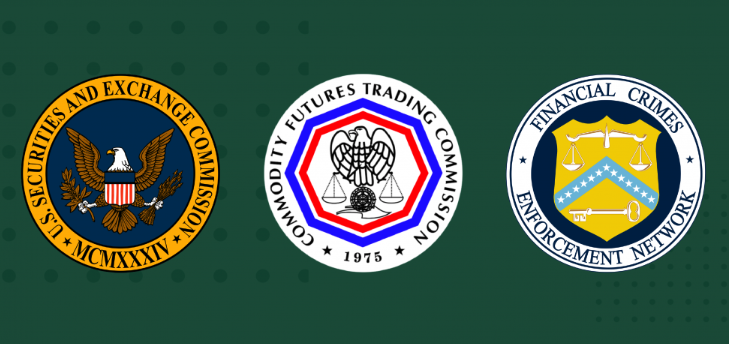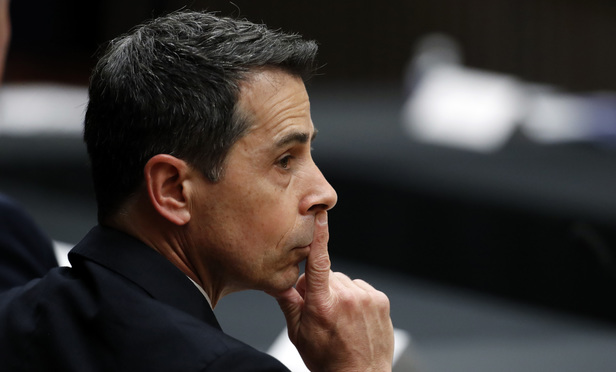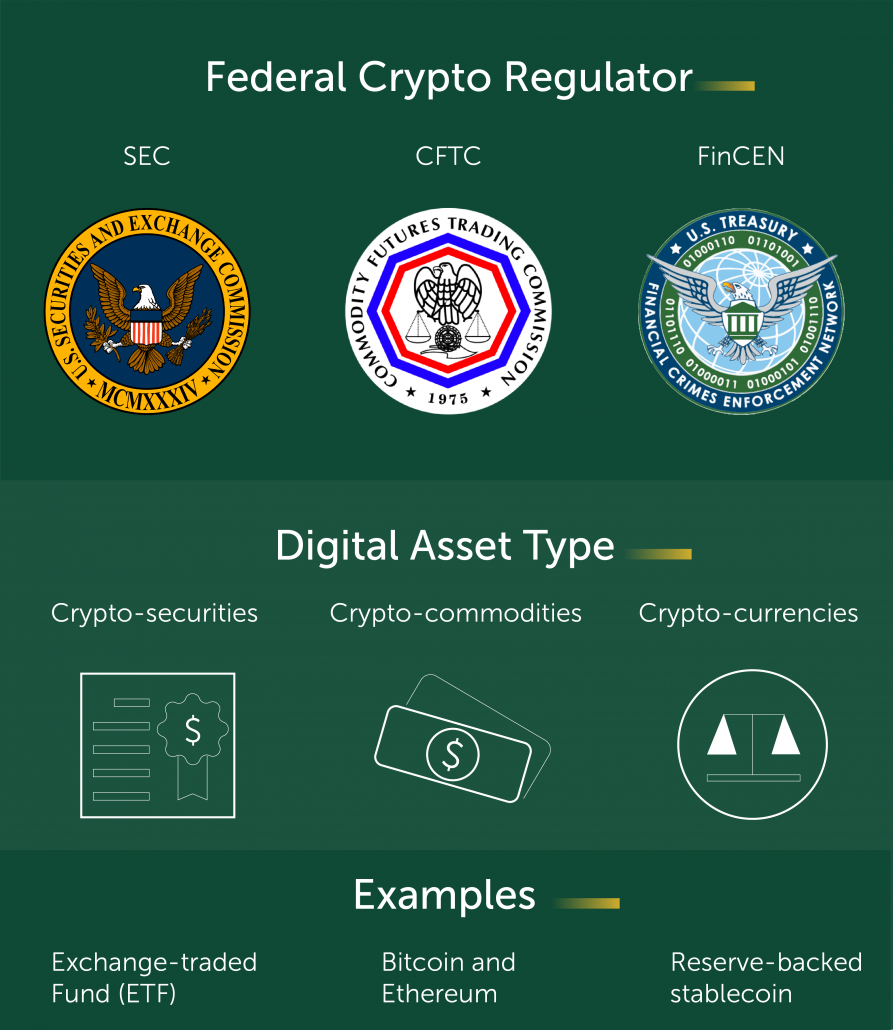The United States’ presidency of the Financial Action Task Force (FATF) in 2018/2019 provided an opportune time for the U.S. to help establish a strong and cohesive global framework for the anti-money-laundering and combating-terrorism-funding (AML/CFT) regulation of virtual assets. Without a doubt, the Financial Crimes Enforcement Network (FinCEN), the leading U.S. AML/CFT regulator which enforces the country’s Bank Secrecy Act (BSA), played an important part in helping to implement the BSA’s “Travel Rule” worldwide.

In 2019, FinCEN became noticeably more active and vocal in their regulation of virtual assets (also referred to as digital assets), in what was a clear end-of-decade push to tie their regulatory efforts since 2011 together and create a clear and comprehensive approach for 2020.
Here follow FinCEN’s most important actions of 2019, with possible implications for 2020.
April 2019: First Action vs Individual Crypto Trader
In April 2019, FinCEN penalizes an individual for the first time for failing to register as a money service business, in a move that shocks the crypto industry.
Described as a peer-to-peer virtual currency exchanger, Californian resident Eric Powers was fined after failing to follow BSA money transmitter rules by not filing Currency Transaction Reports (CTRs) nor Suspicious Activity Reports (SAR) for any of his 200+ crypto transactions to the value of $10,000 during 2012-2014.
At the time, Kenneth Blanco said the following:
“Obligations under the BSA apply to money transmitters regardless of their size.”
It wasn’t the first time FinCEN targeted an individual dealing with cryptocurrency ( they prosecuted Theresa Tetley, the “Bitcoin Maven” in 2017 for facilitating the exchange of Bitcoin for cash). It was, however, the most significant action against a crypto-related entity since the $110m fining of the exchange BTC-e and the subsequent arrest of its founder Alexander Vinnick.
Without a doubt, this civil money penalty was an unmistakable shot across the bows for the industry at large. It was clear now that FinCEN now expected any entity, which includes individuals or a business of any size, who exchanges virtual currency for anything other than personal use, to be subject to the laws of the BSA and compelled to fulfill all its regulations the same a compliant financial institution has to.
May 2019: FinCEN consolidates a decade of regulation with 2 guidances
In May 2019, FinCEN tied together nearly a decade of previous statements on virtual currencies (2011-2019) with two interpretive new guidances.
FinCEN’s CVC guidance, Regulations to Certain Business Models Involving Convertible Virtual Currencies, warns crypto businesses that they are in fact MSBs due to their transacting with CVCs, and are therefore in breach of the BSA if they don’t register and adhere to FinCEN policies.
FinCEN further takes aim at decentralized applications (dAPPS) and says some of them are in fact also MSBs and therefore under their jurisdiction.
FinCEN’s second issuance, The Advisory on Illicit Activity Involving Convertible Virtual Currency is arguably the most important update since the 2013 MSB guidance.
In it, they mention that the 2011 and 2013 guidances had been “exceptionally durable” and therefore didn’t need to be changed much. However, as the industry requested clearer guidelines, the May 2019 advisory did just that.
The document consolidates contemporary FinCEN rules, guides, and rulings that involve money transmitters of virtual currency and is meant to help financial institutions comply with existing BSA obligations, the violations of which can result in significant criminal and civil liability to “money servicing businesses.”
May 2019- FinCEN announces new “Innovation Hours” initiative
In May 2019, FinCEN announced a new initiative, the Innovation Hours program, that would put them in touch with AML and CFT innovators and allow these companies to present their innovative solutions to FinCEN in person. Requests to meet with FinCEN are limited to companies who are already operating businesses and will be approved at the discretion of FinCEN on a rolling basis. The Innovation Hours initiative fits into a bigger program that tries to find novel ways of improving AML/CFT compliance by involving key industry players, in order to shed light on specific challenges and gain better feedback.
October 2019: FinCEN, SEC and CFTC release joint statement on digital assets

In October 2019, FinCEN issues a joint statement with the U.S. Securities and Exchange Commission (SEC) and U.S. Commodity Futures Trading Commission (CFTC) to provide a united AML/CFT front and explain how they define and regulate digital assets. The joint statement foreshadowed the proposed Crypto-Currency Act of 2020 which followed two months later.
The 3 leading U.S. crypto regulators intended to “remind persons engaged in activities involving digital assets of their anti-money laundering and combating the financing of terrorism (AML/CFT) duties” and that they should make sure that they stay compliant with Bank Secrecy Act (BSA).
The statement also mentioned that any entity that is defined by the BSA as a “financial institution” should fulfill AML/CFT duties, including “money services businesses (MSBs) as defined by FinCEN, and broker-dealers and mutual funds obligated to register with the SEC.”
The agencies also tried to clarify what constitutes “digital assets” and acknowledged the fact that there were many different variants and concepts used by the cryptocurrency community. However, this might not be completely accurate, therefore participants should consider the “facts and circumstances underlying an asset, activity or service, including its economic reality and use (whether intended or organically developed or repurposed)”.
The three agency heads misters Heath Tarbert (CFTC), Jay Clayton (SEC) and Kenneth Blanco (FinCEN) also made extra comments to further define their agencies’ various roles in crypto-regulation.
- SEC Chairman Mr. Clayton stressed to need to protect investors and regulate markets properly and fairly. Clayton said that the SEC will regulate all digital assets that qualify as securities.
- CFTC Chairman Mr. Tarbert stated that the Commission would regulate all participants in the derivatives markets such as futures, and that brokers and dealers should report suspicious or illicit behavior to the CFTC.
- FinCEN Director Mr. Blanco made it clear that FinCEN is the lead enforcer of the BSA’s AML/CFT requirements in the United States, and has “full authority” over U.S. financial institutions to ensure they comply.
November 2019: FinCEN says stablecoin operators are money transmitters
In November 2019, FinCEN declares that stablecoins like Libra are also to be classified as “money transmitters” and therefore need to comply fully with the Bank Secrecy Act. This followed months of sustained criticism and attacks on the Facebook-led stable-valued asset by U.S. Congress and senior politicians that resulted in several key members of Libra’s consortium pulling out, such as Visa, Mastercard, PayPay, eBay and in early 2020, Vodafone.

FinCEN director Ken Blanco also cleared up any ambiguity in a strong-worded warning to the crypto industry. Blanco said crypto companies who are classified as money service businesses (MSBs) have been required since 2011 to remain compliant with BSA regulations and will be prosecuted in the future if they continue to fail to do so.
December 2019: FinCEN praises industry; Crypto-Currency Act 2020 proposed

In early December 2019, director Blanco expressed his satisfaction with the cryptocurrency industry’s response since the issuance of FinCEN’s CVC guidance, reporting that over 11,000 SARs had been filed by virtual asset service providers (VASPs) such as exchanges and Bitcoin ATMs in the 6 months since May 2019.
Blanco said: “It is encouraging that CVC entities, dozens of whom had never filed a SAR report prior to the May advisory, are using the red flags and reporting suspicious activity back to us.”
In late December 2019, a new bill, dubbed the Cryptocurrency Act of 2020, is proposed to the U.S. Congress that aims to allocate responsibility for the allocation of virtual currencies to various federal agencies.
The proposed Act:
- divides “digital assets” into 3 categories: crypto-securities, crypto-currencies, and crypto-commodities, then defines each category.
- identifies FinCEN, the SEC and CFTC as “Federal Crypto Regulators”
- assigns a crypto category to each
- To learn more, read our Crypto-Currency Act guide here.

The Crypto-Currency Act of 2020 clearly builds on the joint statement released in October 2019. The proposal is set to come to a vote before U.S. Congress sometime around mid-2020.
It’s clear that FinCEN in 2019 successfully consolidated its regulatory policies for virtual currencies and laid a foundation for its policies and cooperation with other leading FIUs for 2020 and the new decade. With Mr. Blanco’s latest combative comments showing that FinCEN has no intention of abating its systemic approach on regulating virtual currencies, cryptocurrency industry stakeholders need to verify that they are not subject to FinCEN’s regulations, and if they are, that they understand exactly how FinCEN may impact their business. Failure to do so may have devastating consequences.


